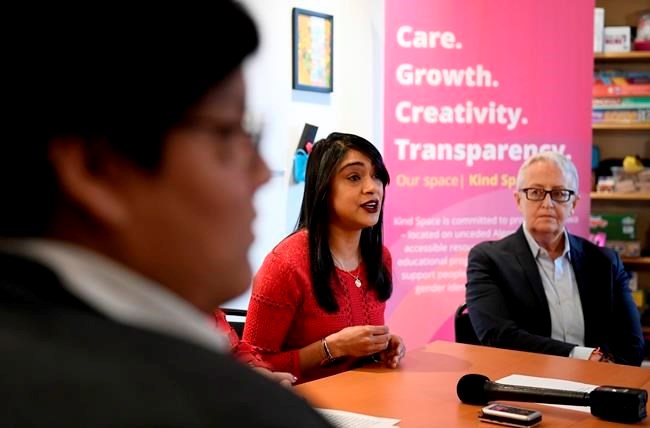OTTAWA — Racist taunts and threats of violence levelled at Indigenous people in the wake of national anti-pipeline protests are "horrible," the federal cabinet minister for diversity, inclusion and youth said Wednesday.
But wilful ignorance on the part of those promoting hatred must be addressed by educating Canadians on the "real history," of Canada, Bardish Chagger said, one written and told by Indigenous people themselves and not by other voices.
Chagger said she has heard firsthand some of the abuse aimed at the Indigenous people and groups who have protested and set up blockades in support of Wet'suwet'en hereditary chiefs in B.C. refusing the construction of a pipeline across their territory.
"Some of the comments I receive in my office are very intentionally ignorant and very hurtful," she said.
"They are not tolerated by myself nor this government. What we want to do is ensure there is better education and information available."
Since the blockades — some lasting a few minutes, others still in place — many Indigenous people have reported becoming the targets of outright racism they are linking to the heated environment.
Incidents include a hockey player at a Calgary game taunted with a slur and video of high-school students in Alberta threatening violence at Indigenous people circulating online.
Social media has been a particular source of consternation; one news site in Sault Ste. Marie, Ont., made the decision to shut down comments on news stories about Indigenous issues after hateful comments kept piling up.
In Ottawa, a group of Indigenous youth cancelled a weekly meeting after someone left them a voice mail threatening the use of guns.
On Tuesday, the community organization Kind Space had hosted the group for a support dinner, with the same organization then playing host to Chagger for her announcement Wednesday promoting government funding for LGBTQ groups.
Anti-Indigenous sentiment is spreading, said Jade Byard Peek, director of advocacy and community care for Kind Space.
"It is a responsibility for all Canadians to recognize the sovereignty and self-determination of all Indigenous peoples," she said.
"It is a big issue, but it's not just the government's alone."
Chagger's portfolio was created after the last federal election, a campaign that saw a debate around racism in Canada after revelations that Prime Minister Justin Trudeau had worn black- and brownface as a younger man.
Her mandate includes advancing issues central to the Black Canadian community, as well as LGBTQ rights and causes.
She's also responsible for the government's existing anti-racism strategy.
When pressed Wednesday on whether the government ought to be speaking louder against the potential rising tide of racism against Indigenous groups, she said her job is to ensure all voices are at the cabinet table when the government makes decisions.
"I don't think we can legislate kindness," she said.
"I think when it comes to people, ignorance is a choice. People who don't want to know more, that's their call. What we can do as a government is provide mechanisms to ensure we are creating more inclusive spaces."
A survey by polling firm Leger published Wednesday suggests 79 per cent of Canadians are aware of the issues between the federal government and Indigenous Peoples, with 44 per cent saying the fallout from the protests has set back that relationship.
This report by The Canadian Press was first published Mar. 4, 2020.
Stephanie Levitz, The Canadian Press



